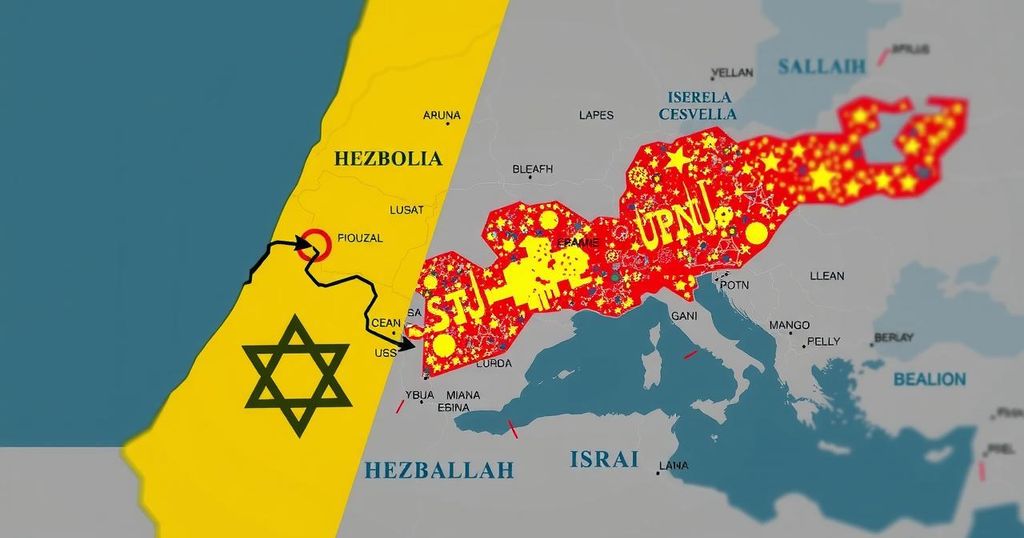The ceasefire between Israel and Hezbollah has offered temporary relief to Lebanese citizens amidst significant casualties and displacement. While some in Israel express frustration over the pause, fearing loss of military momentum against Hezbollah, the broader geopolitical ramifications involve Iran’s strategic interests and the unresolved Israeli-Palestinian conflict. The ceasefire is ultimately a transient measure, failing to address the fundamental issues underlying the region’s instability.
The recent ceasefire between Israel and Hezbollah has provided a temporary reprieve for the affected populations in Lebanon, yet it is far from a comprehensive resolution to the ongoing conflict. Analysts in Lebanon have expressed overwhelming relief, with many noting the dire human toll, including over 3,500 casualties and extensive displacement. In stark contrast, Israeli sentiments reveal discontent with the cessation of hostilities, as officials worry about allowing Hezbollah to recover and accumulate resources.
Diplomatic discussions leading to the ceasefire indicated initial support from various factions, and calls for adherence to United Nations resolutions aimed at enforcing peace were evident. However, tensions remained palpable, particularly among Israeli leaders who sought a stronger military response against Hezbollah. Prime Minister Benjamin Netanyahu’s comments at the UN underscored a hardline position that rejected a pause in operations, indicating a complex balance between military strategy and international expectations.
The geopolitical implications of this ceasefire are multifold. An important factor is the relationship between Hezbollah and Iran, both of whom benefit from a pause to recalibrate and rejuvenate their military capabilities. As regional dynamics evolve, Netanyahu’s administration has expressed intentions to exploit its military gains while scrutinizing the rising Iranian influence in the area. Furthermore, the conflict’s roots highlight a long-standing struggle for political recognition and territorial sovereignty, particularly concerning Palestinian rights.
As the situation unfolds, analysts question the longevity of this ceasefire, especially given the ongoing tensions in Gaza and the broader implications for Israeli-Palestinian relations. The belief that military victories can lead to lasting peace continues to falter amidst historical cycles of conflict. In sum, while the ceasefire offers immediate relief, it is ultimately a temporary measure that fails to address the fundamental issues at play in the region.
The ceasefire between Israel and Hezbollah, prompted by increasing humanitarian crises and international pressures, marks a critical moment in Middle Eastern geopolitics. The escalation of military actions had resulted in substantial loss of life and widespread destruction in Lebanon, necessitating a pause in hostilities. The affected populations in Lebanon welcomed the ceasefire, yet significant resistance remains within Israel, where the government grapples with internal divisions regarding military strategy against Hezbollah. Additionally, the influence of Iran and the precarious situation in Gaza complicate the broader dynamics in the region. Historical tensions rooted in the Israeli-Palestinian conflict persist, highlighting the ongoing struggle for lasting peace.
In conclusion, while the newly established ceasefire in Lebanon provides essential respite for its citizens, it does not present a lasting solution to the complex and deeply entrenched conflicts in the region. The diverging perspectives from Lebanon and Israel illustrate the multifaceted nature of the hostilities. As both local and regional players recalibrate their strategies in light of this development, the specter of future conflicts looms large, particularly if fundamental political issues, particularly regarding Palestinian rights, remain unaddressed. The path forward necessitates a broader engagement that seeks to foster long-term solutions rather than merely temporary ceasefires.
Original Source: www.bbc.com






